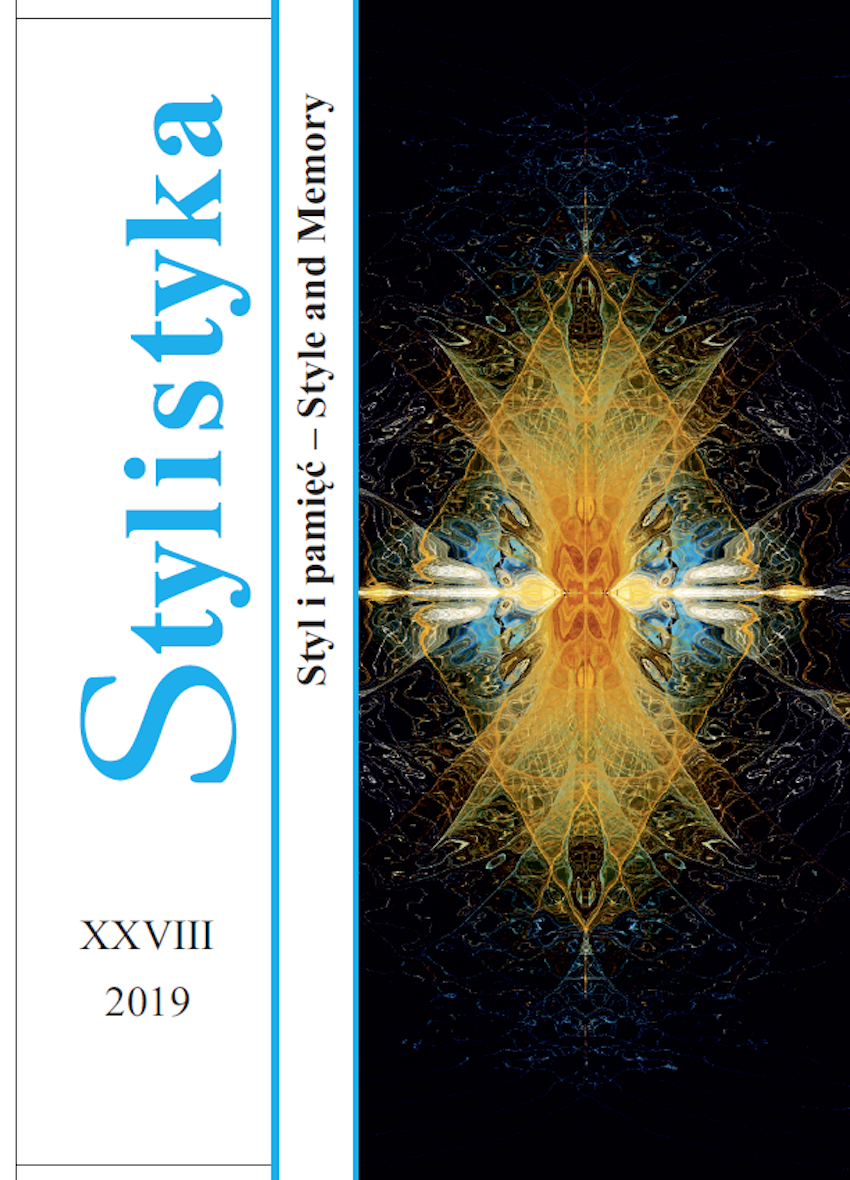„Речевая память” языка и спонтанная рекурсия стилистической нормы
“Speech memory” and spontaneous recurrenceof the stylistic norm
Author(s): Olga I. SeverskayaSubject(s): Language and Literature Studies
Published by: Uniwersytet Opolski
Keywords: speech memory; space and time; recurrence of stylistic norm; language cultyre; older and younger norms; corpus analysis
Summary/Abstract: The article documents cases of grammatical, phonetic and lexical “irregularities” occurring in modern Russian. The conclusions are based on analysis of the National Corpus of the Russian Language and internet queries. The author pays special attention to phrases indicating time relations: “for some time” / “after what time”. It is noted that there is an “older” and “younger” standard for using collocations with the lexeme „time” and prepositions, and the change in the norm resulted from the transition from treating space-time as an abstract, uniform chronotope to the idea of time as a discrete quantity, i.e. certain fragmented, countable sections (century, year, month, day, hour, minute, second). Research has shown that discrete forms denoting time began to dominate from the mid-nineteenth century, which is related to the changes in the image of the world taking place at that time. The old ways of speaking about time, however, still appear in modern Russian. The article shows that other lexical and inflectional archaisms (e.g. short forms of adjectives) are also returning to modern speech. This can be considered a manifestation of social linguistic memory, which involves having the ability to recall and use old forms or meanings, according to norms that used to be applied in the past. The author proposes that this phenomenon be called “spontaneous recurrence of the norm”. It is claimed that such recurrence of the old norm may be caused either by speakers’ ignorance of the current norm or by their desire for a “retro” style that results from fashion or manners. It could also be a manifestation of “language refreshment” through the activation of speech memory, or retrieving former forms and old standards out of the “subconscious” of language users.
Journal: Stylistyka
- Issue Year: 2019
- Issue No: XXVIII
- Page Range: 41-52
- Page Count: 12
- Language: Russian

